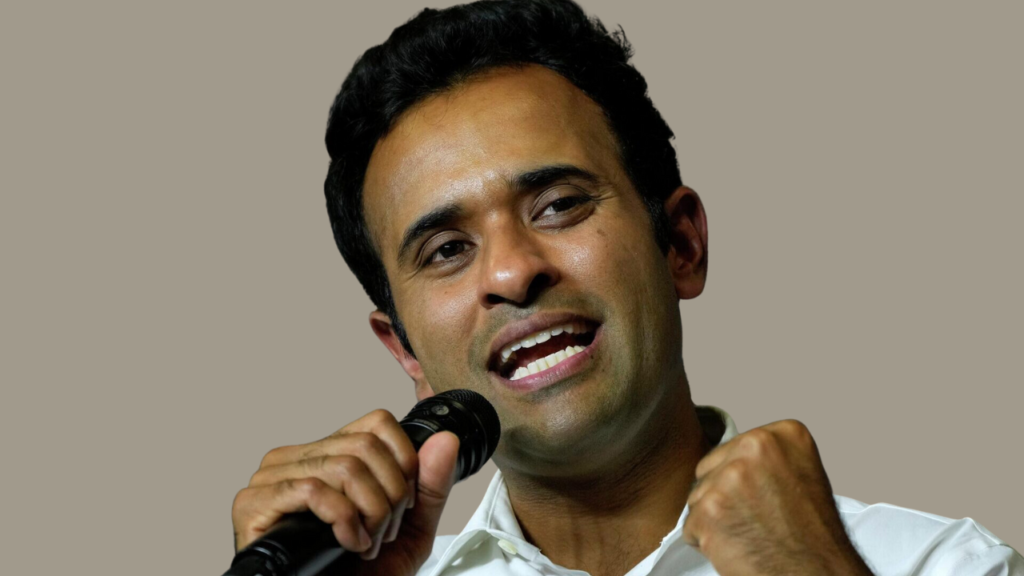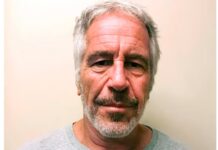The youngest candidate on the debate stage on Wednesday night didn’t make any allies among his fellow Republican presidential hopefuls. He openly questioned their moral values, ridiculed their promises and argued that his lack of government experience made him the ideal candidate to tackle the nation’s problems.
For Vivek Ramaswamy, this environment felt familiar. Long before he found himself explaining complex concepts to Mike Pence and predicting a future career in the defense industry for Nikki Haley, Ramaswamy was already a bold presence in the biotech sector. In 2015, at just 29 years old and fresh out of Yale Law School, he boldly critiqued the trillion-dollar pharmaceutical industry for its flawed approach to drug development.
Republican Debate : Vivek Ramaswamy
Vivek Ramaswamy’s venture, known as Roivant, aimed to outsmart giants like Pfizer and Merck by uncovering hidden value in medicines that these companies, hampered by bureaucracy, couldn’t identify themselves. He confidently stated to Forbes that his endeavor would create “the highest return on investment ever seen in the pharmaceutical industry.”
Similar to his recent debate appearance, Ramaswamy’s actions in biotech garnered both enthusiastic support and harsh criticism. Some of his colleagues hailed him as a visionary, an outsider shaking up an industry that had become stagnant at the top echelons. However, others viewed him as a profit-seeker taking advantage of the biotech boom, accusing him of having a one-trick-pony business plan that would enrich him and his hedge fund associates more than it would benefit medical advancement.
In 2016, a Massachusetts Institute of Technology business professor expressed skepticism, saying, “I know I run the risk of looking like a fool two or three years from now, but this sounds like some people are being deceived.”
A year later, Vivek Ramaswamy’s boundless confidence faced a significant setback when an Alzheimer’s disease treatment, which had been relatively unknown in the pharmaceutical world, failed in a closely-watched clinical trial. This failure wiped out $2 billion in value and lent credibility to the belief that Roivant’s supposedly revolutionary business model was overly clever.
Derek Lowe, a biochemist, lamented the outcome on his blog, apologizing to those who had believed in the hype. He asserted, “Frankly, I see the entire effort as a misuse of funds — Alzheimer’s research would have been better served if the same amount of money had been directed elsewhere in the field.”

Vivek Ramaswamy personally acknowledged the challenge and humility of this failure. He vowed to use the disappointment as a catalyst to redouble his efforts to ensure Roivant’s success. He believed that the company would emerge even stronger after facing the harsh experience of failure.
By that point, Ramaswamy, often described as biotech’s most prominent millennial figure aside from Martin Shkreli, had prepared contingency plans. Roivant had a robust pipeline of medicines developed through an expanding network of subsidiaries. Ramaswamy’s fundraising skills had secured the company’s future with billions of dollars in investments from firms like SoftBank and Viking Global.
In 2021, Vivek Ramaswamy stepped down from his role as CEO, assuming the position of executive chairman. Roivant transformed from a brash disruptor into a more conventional pharmaceutical company. By February 2023, when Vivek Ramaswamy left the company entirely to pursue his presidential campaign, Roivant had secured approval from the Food and Drug Administration for six medicines, with several more in advanced stages of development.
Whether Roivant will fulfill Ramaswamy’s original promise of becoming the industry’s greatest return on investment remains uncertain. However, the company is now valued at approximately $9 billion and major players like Pfizer and Merck, once seen as competitors, have reportedly shown interest in acquiring it.
Vivek Ramaswamy’s journey, marked by audacity, resilience, and transformation, serves as a testament to the unpredictable nature of both the biotech industry and politics. Whether he continues to polarize opinions on the political stage as he did in biotech remains to be seen, but his impact on both fields is undeniable.





